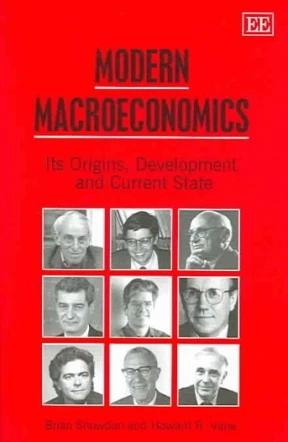Modern Macroeconomics – Its Origins, Development and Current State

Blurb
More than a decade after the publication of the critically acclaimed A Modern Guide to Macroeconomics, Brian Snowdon and Howard Vane have produced a worthy successor in the form of Modern Macroeconomics. Thoroughly extended, revised and updated, it will become the indispensable text for students and teachers of macroeconomics in the new millennium.Book summary
This book gives a very clear overview of the history of Macroeconomics and how it has evolved. It reflects on the different perspectives and debates that have defined the field, with valuable insight into the history and theory. Additionally, there are interviews with economists that have played a major role in shaping modern macroeconomic theory (e.g. Robert Solow, Milton Friedman, Robert Lucas).
Comment from our editors:
The book contains some pluralist perspectives such as a chapter for the Post-Keynesian school and one for the Austrian school. However, its most important contribution is providing a thorough overview of the macroeconomic debates. For example, explaining the different aspects that divide different Keynesians, or the various interpretations that can be made from Keynes' General Theory. It also explains Keynes from the baseline of Classical and Marginalist economics, which helps the reader in understanding Keynes' contributions as well as his analytical limitations.
Overall the book provides a better understanding of the main macroeconomic concepts and their origins. Although the book is not necessarily critical towards neoclassical concepts itself, it is great for gaining the foundation needed for critical analysis of the theory.

